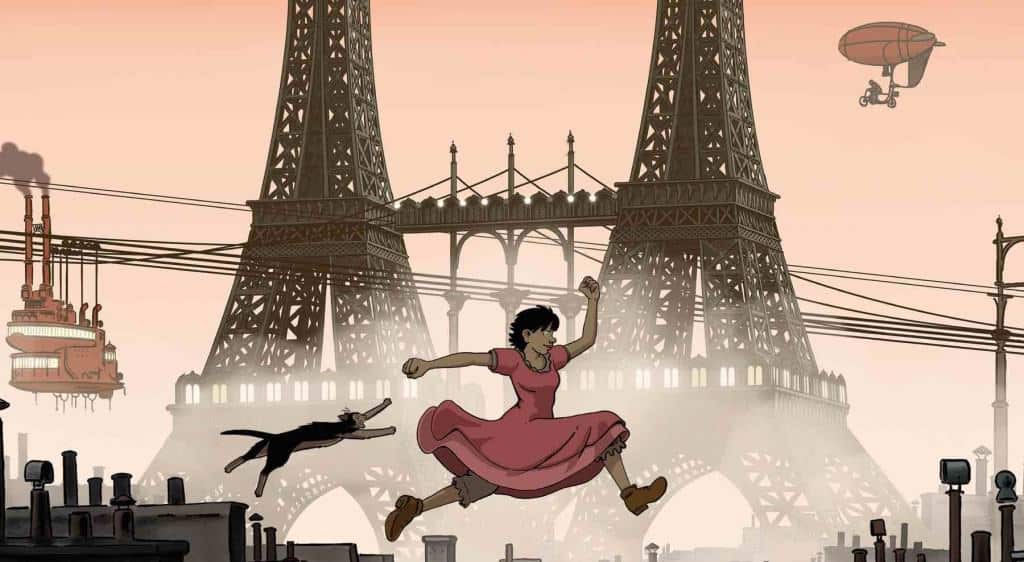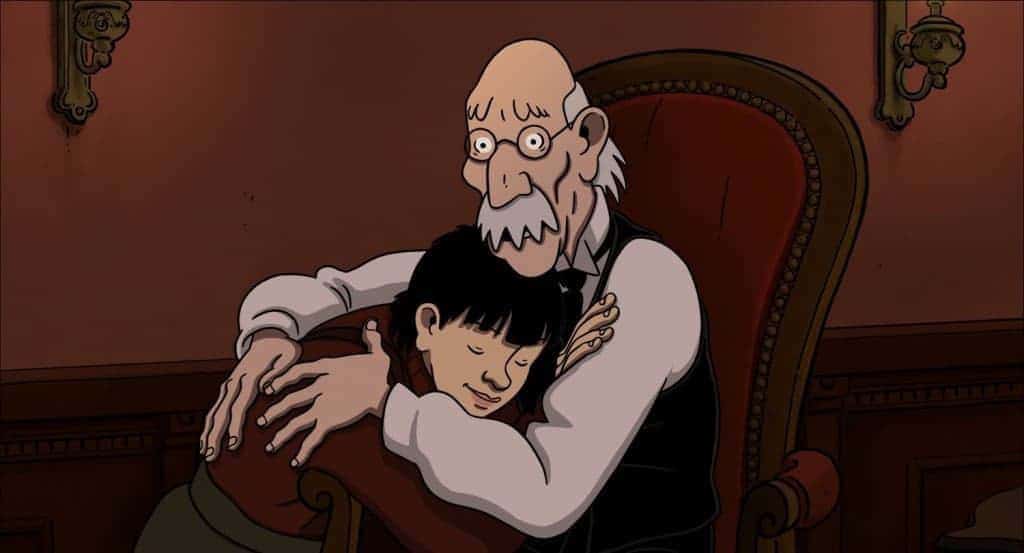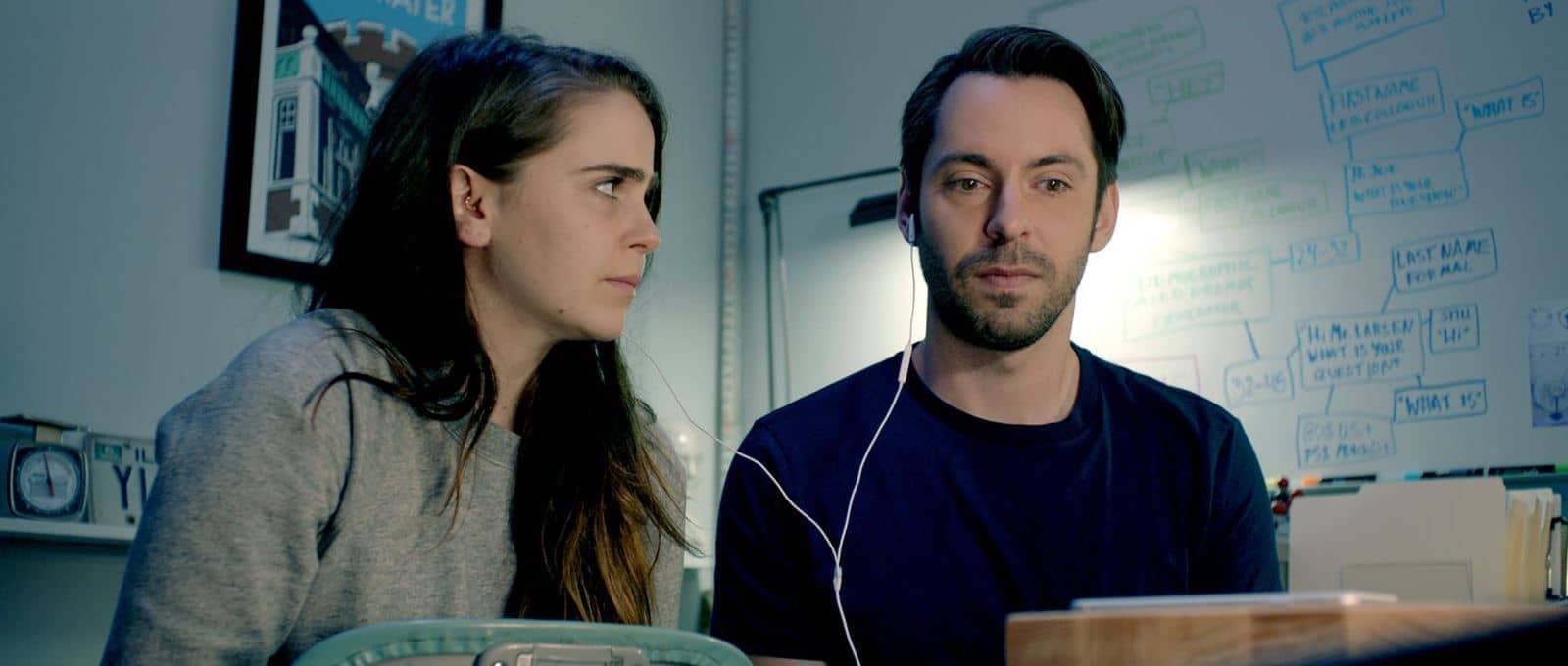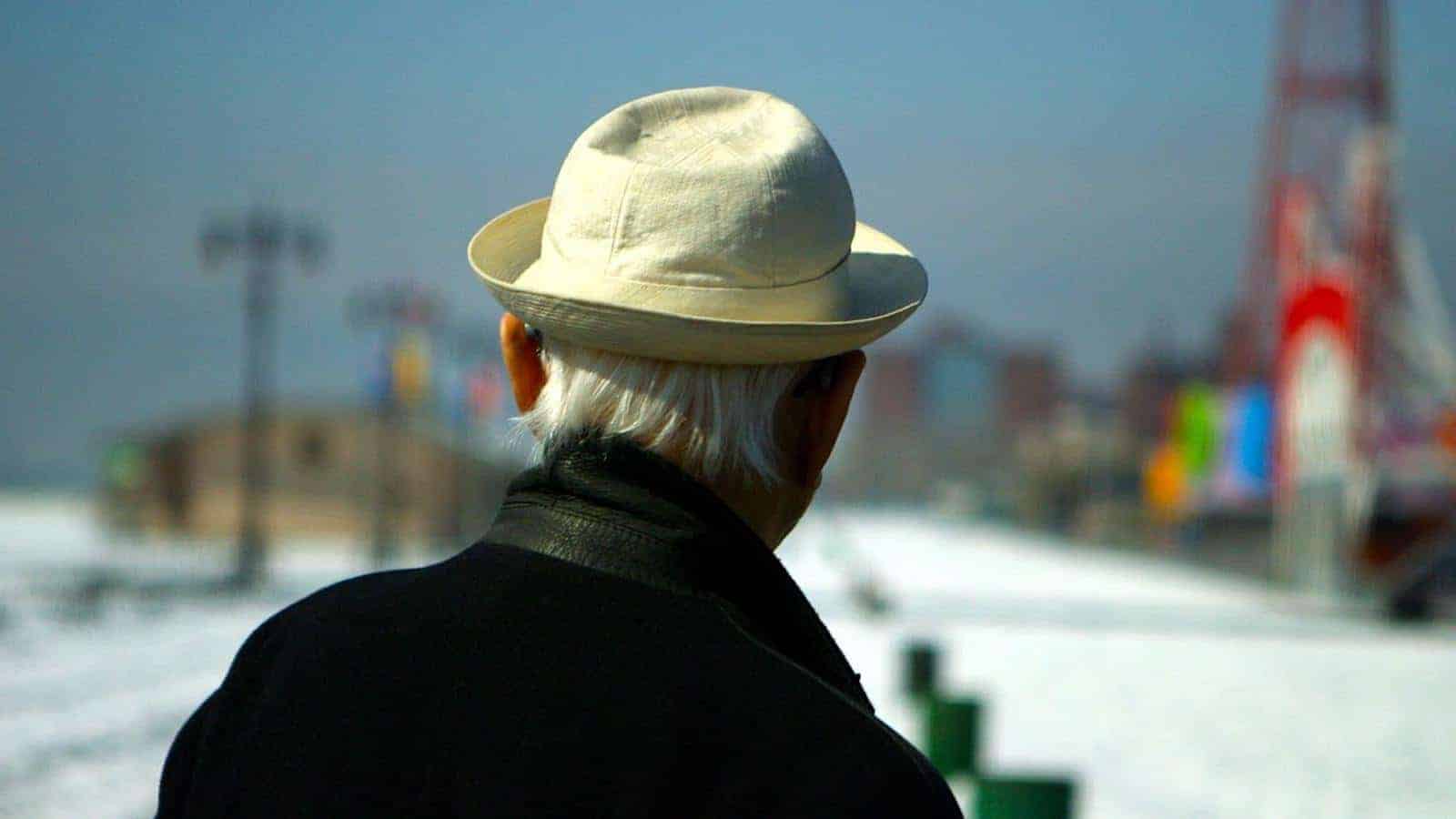April and the Extraordinary World is an immersive science fiction narrative and a thoughtful reflection on our own world.

Set in a beautifully-animated steampunk reality, April and the Extraordinary World wraps us up in the story of April, a young woman living secretly in a hollowed-out monument with her only friend, a talking cat named Darwin. April spends her days nicking chemistry textbooks and evading the incompetent French police, headed by a mustachioed Javert-type. The film’s wry tone is conjured by Jacques Tardi’s cheerfully unsentimental animation, and his somewhat cartoonish art style softens an otherwise grim setting.
April is in hiding because she’s conducting scientific experiments, which in this reality must be clandestine. Brilliant minds are scooped up by one of two groups: the government, which presses scientists into the service of the military; and a shadowy organization that has “disappeared” the most extraordinary minds over decades for unknown purposes. One of these groups robbed April of her family.
As a result of this brain-drain, no energy source other than steam has ever been developed — no gas, no oil, no electricity. April and the Extraordinary World turns steampunk into an exploration of resource dependency: a world that runs on steam power effectively runs on coal. Coal is a finite natural resource, and with global demand, it is rapidly depleted. Eventually nations are reduced to scrabbling over charcoal. This leads to offscreen ‘energy wars’, the unseen backdrop of April’s journey, where countries pour assets and brainpower into battling over resource-rich territories. This militarism, and the devastation it engenders, are the silent villains behind all of April’s troubles.

April has two quests: to perfect the invincibility serum developed by her parents, which would cure the direly-ill Darwin; and to find her family. To do this, our surly heroine must be chased from her tower into the arms of her eccentric grandfather, closely followed by a shifty young man bowled over by April’s intelligence and drive. Together, April and her coterie are dragged on an adventure of discovery that could literally save the world.
April slouches and grumbles, made wary by a life of hiding, but we sense that she longs to blossom. All she needs is someone to get behind her. When she flings open a closet in her grandfather’s house, she sees that he had made the same dress for her, year after year, in ever-increasing sizes, so that whenever she came home she would have something to wear. The pink and frilly number looks odd on April at first, but she wears it like a superhero costume — a mark of her newer and stronger identity. She’s no longer alone. Someone was always there, waiting for her. This spurs her to greater self-confidence and new heights of bravery.
April grows from cagey and isolated into a vibrant young woman whose scientific curiosity spurs the plot. As a female scientist, April is an unfortunate rarity in film, but in this world April’s gender is unremarkable — after all, April’s mother is a chemist who more than equals her husband. We are caught up in April’s adventures and then energized by her spirit of discovery, her infectious desire to learn and grow.
April and the Extraordinary World is an immersive science fiction narrative, but it’s also a thoughtful reflection on our own world. April’s treeless, smog-choked city vividly illustrates that clean energy is a global problem, touching every facet of life. Wars are fought over resource-rich lands; people sicken from polluted environments; and relying on finite resources will leave us desperate when they eventually run out. The brief mention of “clean oil” at the end of the film is a gentle reminder that this resource dependence mirrors our own. The film also faces the reality that military needs drive much of scientific research — for good, but frequently for ill.
April and the Extraordinary World doesn’t turn away from the darkness of the world — in fact, that darkness is integral to the plot. But our final impression is one of hope and wonder. April saved the world because she wanted to save her cat. The desire and drive to do good can, in the bleakest of circumstances, yield enormous results.

